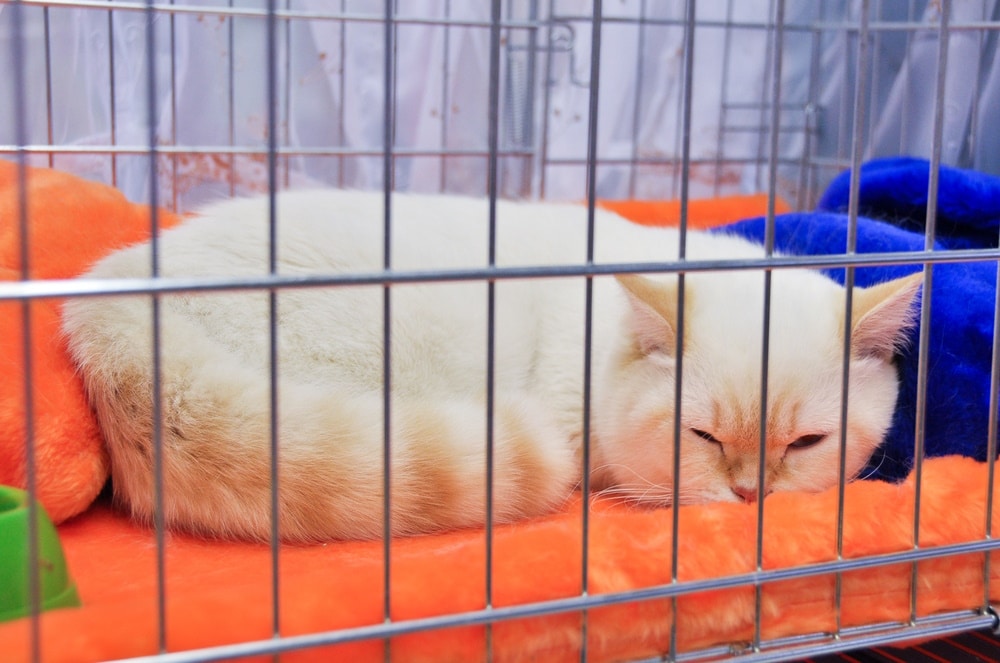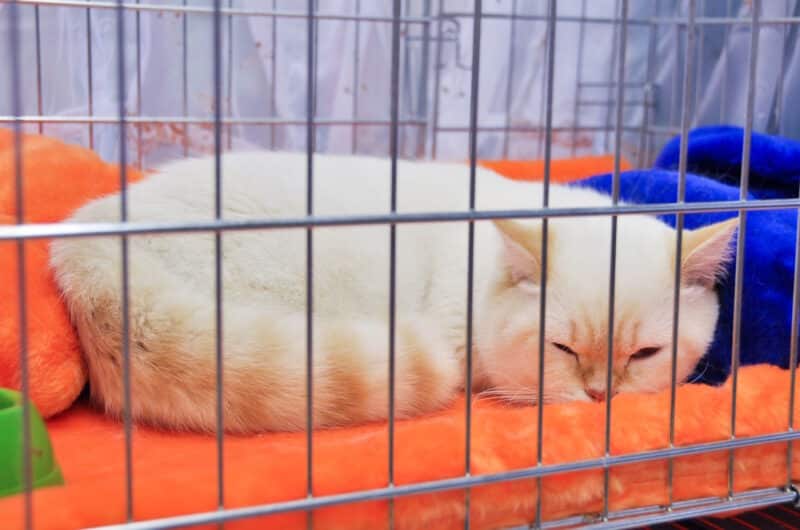At one point or another, some cat parents find themselves in a scenario where the vet tells them that their pet needs cage rest. Whether they had an operation, an accident, an injury, or a bout of illness, sometimes strict rest to avoid too much movement and jumping is required. But felines, given their mysterious, independent, and curious natures, are not the best creatures for resting. So, how exactly can you encourage this and reduce boredom and stress? We have six tips to help you get through this challenging time.
The 6 Tips to Get Your Cats to Take Bed Rest Seriously
If your cat has suffered an accident, injury, or illness and needs cage rest, it’s important to create an environment conducive to this to give you the best shot of your cat cooperating and to ensure they have the adequate rest they require to promote healing. Below are several tips to follow the vet’s orders and help your cat recover as quickly as possible.
1. Find the Appropriate Cage Size
The most important part of ensuring your cat is comfortable while on cage rest is to purchase or borrow a crate (usually a puppy or dog crate) that is big enough to accommodate their size and needs. It needs to be large enough that your cat can not only sit, stand, turn around, and lay down comfortably, but it should also be able to comfortably fit their food and water bowls, a litter tray, and an area for comfortable bedding materials. Make sure the crate also has a secure roof so that they can’t injure themselves by trying to escape.
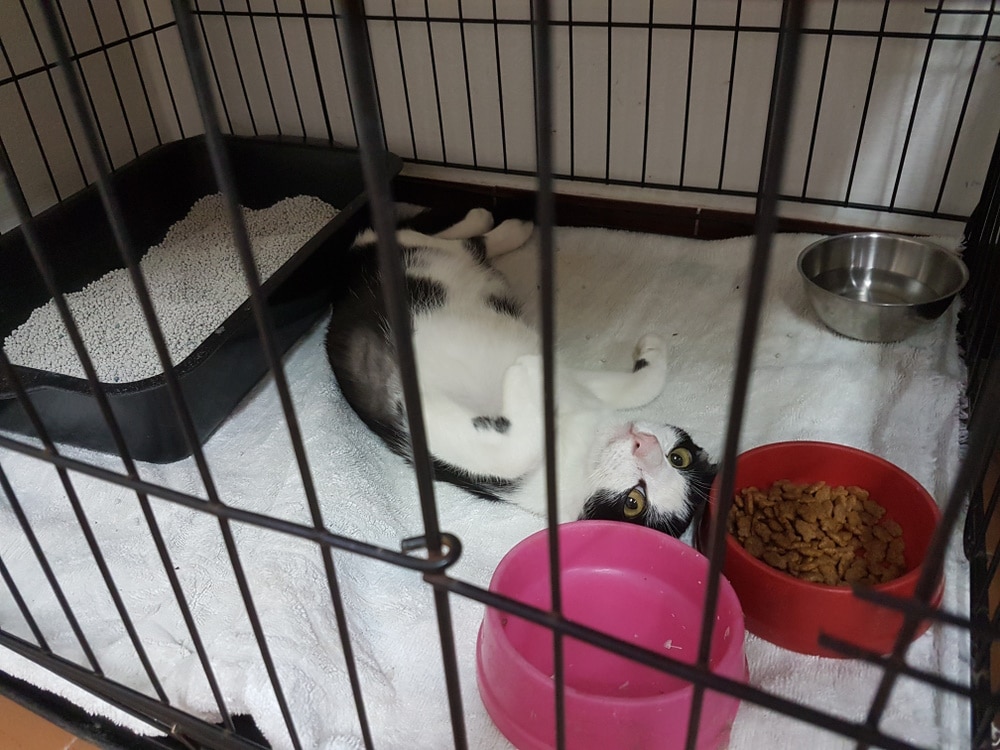
2. Cage Location
It’s best to put the cage in a location that is quiet and calm but also where your cat can get plenty of attention. If you have a shy or skittish cat, it might be best to put the cage in a spare room that is away from the main foot traffic of the house but where you can also easily visit them throughout the day. If your cat is a bit more outgoing and social, they might do better if it’s in a location that won’t necessarily get them worked up but where they can still see what’s going on in the house and have regular access to you.
3. Keep Their Space Clean
Cats are clean creatures, and they’re going to be a lot more comfortable staying in an area that you clean daily. That includes washing their food and water bowls daily, as well as scooping their litter box multiple times per day and doing a complete litter change once or twice a week. Ensure their bowls are sturdy enough that they don’t get knocked over and take away uneaten food after mealtime.
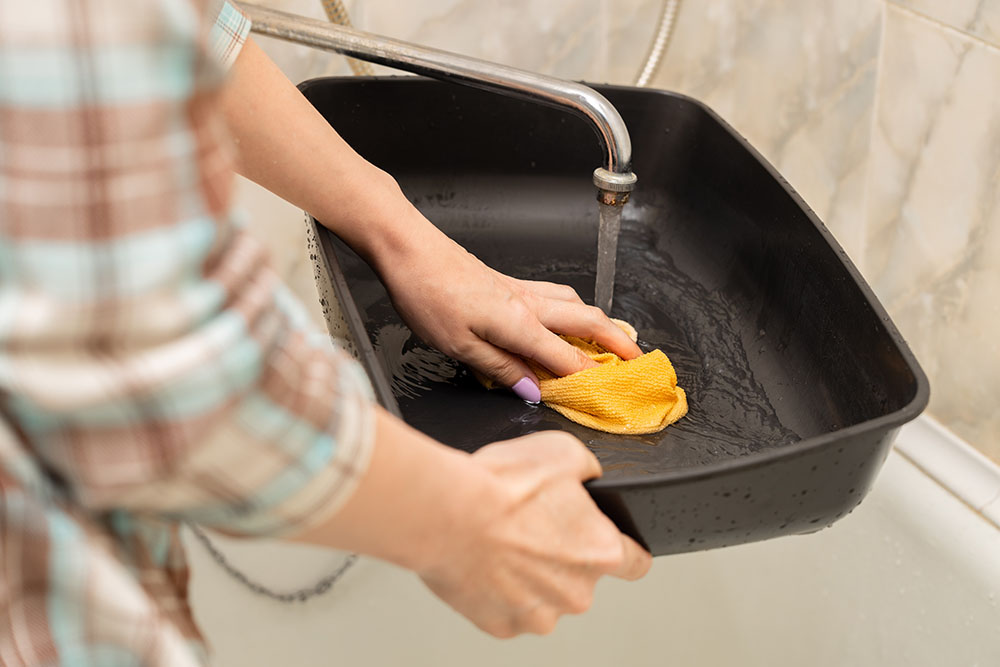
4. Provide Mental Stimulation
Even though physical activity should be limited, providing mental stimulation through brushing/combing, toys, puzzle feeders, or gentle interaction with yourself to prevent boredom is essential. Some cats will enjoy having their cage near a window so they can see what’s going on outside, for other cats this might create more stress, you know your cat best.
Consult with your vet about suitable toys and activities for them to ensure you are providing them with the correct kind of movement. Rehabilitation and physical therapy may also be needed.
5. Ensure the Room Temperature Is Comfortable
Your cat can’t get up and move if the room is too hot or too cold, so it’s essential to keep it at a temperature that lies somewhere in the middle. Make sure the cage is not located in a draft or direct sunlight.
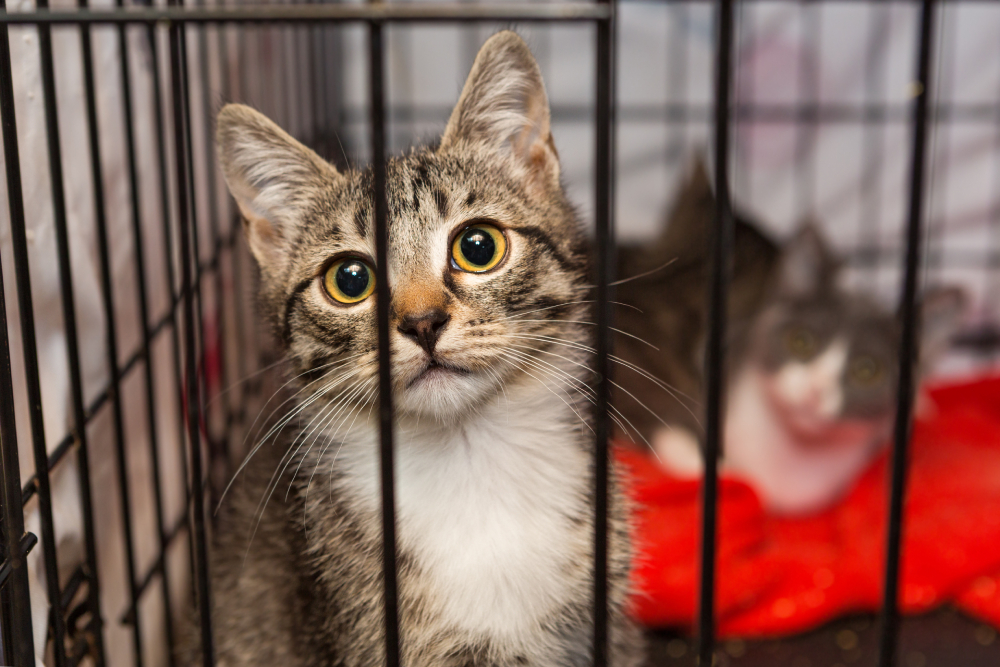
6. Comforting Your Kitty
Keeping your cat relaxed and comfy while on cage rest is going to make the process a whole lot easier. Offer them a comfy bed and blanket, as well as something that smells like you, like an old T-shirt, so that they feel comforted by your scent. Calming cat pheromones such as Feliway spray can also help reduce stress during the recovery period. You should also be visiting them regularly throughout the day and offering lots of pets, praise, and attention—maybe with a few tasty treats if it’s been cleared by your vet. Ask your vet when limited time outside the cage for gentle play or interaction is possible to reduce boredom.
Conclusion
In some situations, cage rest is a necessary evil to allow a cat to recover and heal from an injury or surgery, and get back to their normal fit and active selves. Although it’s not without its challenges, you can make the entire process go quicker and smoother if you use some of our tips from above.
Of course, always follow the advice and recommendations of your veterinarian, as they have the best understanding of your cat’s condition and the appropriate course of action for their recovery.
Featured Image Credit: Zanna Pesnina, Shutterstock

